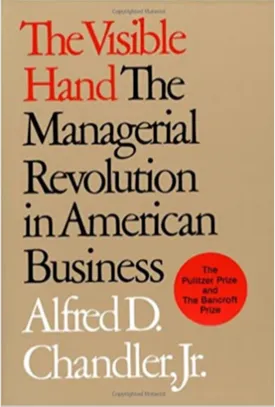Alfred D. Chandler Jr.
Alfred D. Chandler Jr. is one of the most influential and well-respected authors in the field of business history. He served as a professor at Harvard and Johns Hopkins, and is most noted for his books on the structure and evolution of the modern corporation. He is considered the foremost authority on large firms, their management and growth, and the impact they have on society. Chandler won the Pulitzer Prize in 1973 for “The Visible Hand: The Managerial Revolution in American Business” and was honored with the National Medal of Science in 2002.
Chandler was born in 1918 in Massachusetts. He attended Harvard and graduated in 1941 before joining the United States Navy for two years. After his service ended, he studied further at Harvard and then taught economics there. He continued his education at Columbia and Harvard, eventually earning his PhD from Harvard in 1954.
Chandler’s key works include “Strategy and Structure: Chapters in the History of the American Industrial Enterprise” (1962) and “Scale and Scope: The Dynamics of Industrial Capitalism” (1990). He is credited with creating the 'structure-conduct-performance' theory, which states that structure and competition in business markets (conduct) determine the performance of firms. His works are considered classics in the study of business history, and have greatly shaped the understanding of modern corporations.
Chandler's book “The Visible Hand” is one of his most widely known works. It examines the development of corporate management in the United States and its subsequent impact on the economy. The book looks at how changes in management practices, especially those of large, publicly traded companies, have shaped the economic landscape. It covers the contributions of those like Frederick Taylor, who pioneered the scientific management approach, and Edwin Gay and other technically minded administrators who worked to install an efficient, bureaucratic model in corporations.
Chandler's “Strategy and Structure” looks at how modern corporations have evolved throughout history and how their structures have had an impact on the economy. Through this work he demonstrated how changes in corporate structures and decisions directly affect a firm's ability to compete. It also reveals how large firms are more likely to dominate markets and often expand by absorption or merger.
In “Scale and Scope” Chandler takes a look at the expansion of large corporations, as well as their ability to develop economies of scale and scope. He also examines the impact of vertical and horizontal integration, which helped to drive large corporations into the global economy. The book examines the effects of technological progress on business strategy and how it has resulted in the growth of multinational corporations.
Alfred D. Chandler Jr. is an acclaimed author and an authority in the study of business history and history of the modern corporation. He won the Pulitzer Prize, National Medal of Science, and has been honored with a number of other awards for his work on the history and development of large corporations. His works are widely read, and his theories continue to be highly influential in the field.

